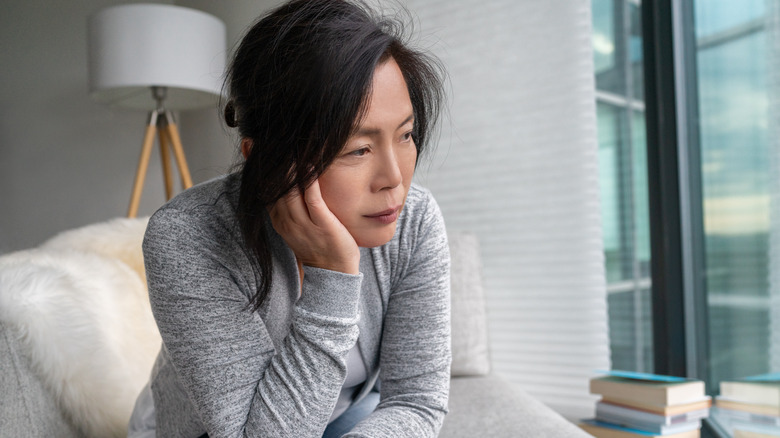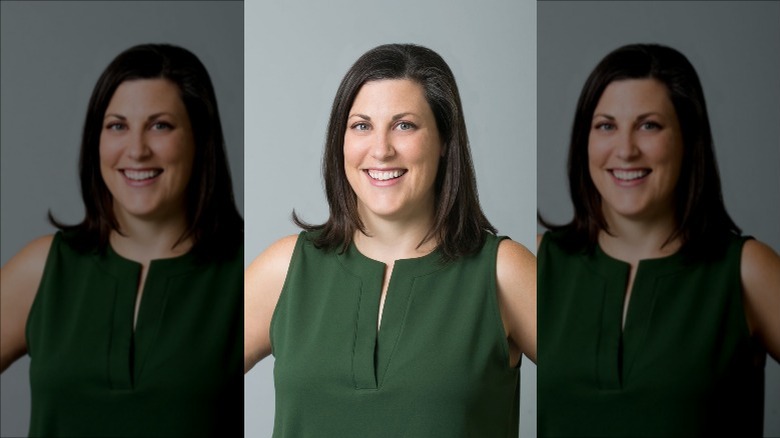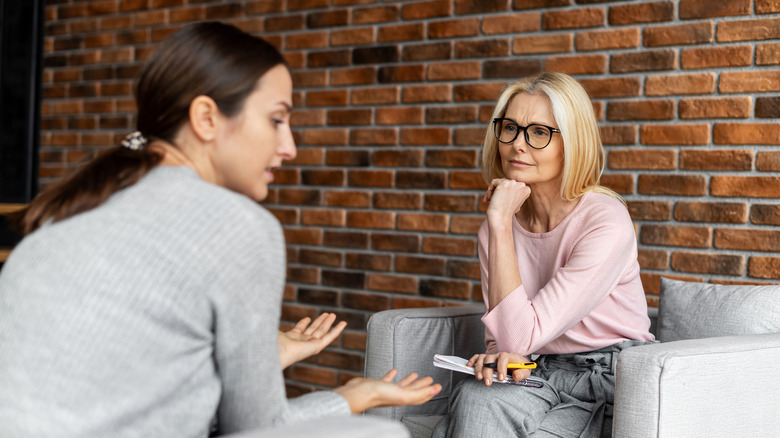Therapist Sarah Harte On How Overturning Roe V. Wade May Worsen The Mental Health Crisis - Exclusive
Since the Supreme Court's ruling in Dobbs v. Jackson Women's Health Organization on June 24, 2022, we've already seen some of the ripple effects throughout the U.S. Their decision overturned the previous ruling on Roe v. Wade, which protected access to abortions under the constitution. Now, the right to abortion can be determined at a state level. Since the ruling, states like West Virginia, Oklahoma, Missouri, Alabama, and more have already prohibited access to abortions.
With those changes to abortion law, many are concerned about the impact the court's decision will have, as access to abortion affects people with uteruses in many ways. Beyond the physical impact of carrying an unwanted pregnancy to term, there are numerous mental health implications of overturning Roe v. Wade.
Sarah Harte, LICSW and Director at The Dorm, gave an exclusive interview with Health Digest to discuss those concerns. Harte is an adjunct lecturer at Columbia University's School of Social Work and also works with patients ages 18-35 as the director of the full-service treatment community The Dorm. Given her profession, she's invested in how these changes to abortion access can harm young women and others.
How limiting access can worsen physical and mental health
Speaking on the impacts of limiting access to abortion, Sarah Harte, LICSW, referenced the Turnaway Study, which found that people who were denied abortions "experienced increased negative health impacts, as well as negative financial impacts, as compared to women who were allowed to terminate their pregnancy." This negative impact also affects the children born into those situations. Harte noted that it's important to realize pregnancy is "not a 'health neutral' event — there is a real and sometimes negative impact on the woman's body and overall health, even for years, following a pregnancy." Deciding to carry a pregnancy to term is a big decision, regarding more than the next nine months — and having that choice taken away can have serious consequences.
As far as the mental impact of carrying an unwanted pregnancy, Harte said, "Removing the opportunity of choice to terminate a pregnancy can create feelings of being trapped and stuck while making previously existing conditions worse, both mental and physical." On top of that, the Supreme Court's decision to overturn Roe v. Wade can lead to feelings of isolation for those who get abortions. "This decision also exacerbates the stigma that is already present in the U.S. culture around abortion, further alienating people who make the choice to terminate a pregnancy to protect their own well-being," Harte said.
How this decision may affect mental health treatment
Sarah Harte also shared her concerns about how the decision to overturn Roe v. Wade may lessen access to mental health treatment, particularly for those in underserved communities. "Due to the mental health crisis present in the U.S., there is a limited quantity of available mental health resources — especially in under-resourced and rural communities," Harte explained. "When people reach out for mental health support, they are often faced with long waitlists and a mental health system that is not user-friendly."
Unfortunately, with many states prohibiting abortions, Harte worries that wait times and other flaws in mental health treatment will only be increased. "Research shows that a lack of access to abortion care will worsen a woman's existing mental health conditions," she said. Given that research, more women and people with uteruses will likely need counseling and other mental health services, but there's no system in place to increase their access — "adding more stress to an already stressed system," said Harte.
For more information on The Dorm and its mental health treatment services, please visit thedorm.com.



